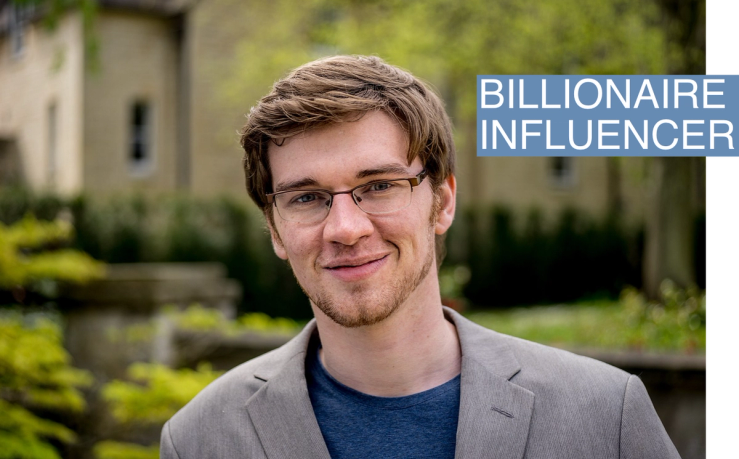The Scoop
The collapse of the crypto exchange FTX and the fall of its eccentric founder, Sam Bankman-Fried, has brought with it a wave of questions about the philosophical movement that he helped fund and seemed to embody, “effective altruism.”
The philosophy, which argues the best way to do good in the world is to take an ambitious approach guided by reason, has become prominent in Silicon Valley and influences a network of related philanthropic organizations with billions of dollars in funding.
Now, the question is whether Bankman-Fried and others used aspects of effective altruism to justify potential financial improprieties, or whether it was merely a smokescreen for misappropriating other people’s money, and what role the institutions he funded played in one of the crypto industry’s greatest financial scandals.
The answers may be found, in part, in a previously unreported 2018 incident that occurred inside the movement’s main institution, the Centre for Effective Altruism, a well-financed charity founded by Oxford University philosophers Will MacAskill and Toby Ord.
That year, its trustees considered allegations that Bankman-Fried had engaged in unethical business practices at his crypto trading firm, Alameda Research, but ultimately took no action, according to a person with knowledge of the discussions. A spokesman for the Centre for Effective Altruism declined to comment. MacAskill and Bankman-Fried, an investor in Semafor, didn’t respond to a request for comment.
A second person, Tara Mac Aulay, said on Twitter that she helped found Alameda but resigned in April 2018 along with other colleagues, “in part due to concerns over risk management and business ethics.”
The person with knowledge of the matter confirmed that employees left Alameda over the concerns laid out by Mac Aulay, who declined to comment through a spokesman. Before helping to start Alameda, Mac Aulay had served as CEO of the Centre for Effective Altruism.
Bankman-Fried, who was also a member of the Centre’s board of trustees for its U.S. subsidiary, stayed in the position until 2019, according to the person familiar with the matter.
Roughly two years later, Ben Delo, another donor to the Centre, was indicted by the U.S. Department of Justice for failing to employ adequate anti-money laundering measures at BitMEX, the cryptocurrency exchange he co-founded. He was later sentenced to 30 months probation. Delo declined to comment through a spokesman.
After the incident, the Centre announced it was working with its lawyers “to devise and implement an overarching policy for due diligence on all of our donors and donations going forward.” The organization said it had engaged a third-party firm to do research specifically on donors who contribute more than $20,000 a year.
Bankman-Fried stepped down as CEO of FTX last week when it filed for bankruptcy. Government investigations of FTX are focusing partly on whether the exchange loaned customer funds to Alameda to cover some of its bad investments. In a bankruptcy filing, FTX’s newly appointed CEO John J. Ray III said he had never “seen such a complete failure of corporate controls.”
After the scandal became public, MacAskill distanced himself from Bankman-Fried and FTX, saying he had not been in contact with anyone at the company. “I condemn what they did. I had put my trust in Sam, and if he lied and misused customer funds he betrayed me,” MacAskill tweeted.
He said that Bankman-Fried had not embodied the morals of effective altruism. “For years, the EA community has emphasised the importance of integrity, honesty, and the respect of common-sense moral constraints,” he wrote. “If customer funds were misused, then Sam did not listen; he must have thought he was above such considerations.”
MacAskill added that he had resigned from his role as an unpaid advisor at the FTX Future Fund, a philanthropic organization that had pledged to award $100 million to projects that tackle causes associated with effective altruism.

Reed and Louise’s view
MacAskill said he was betrayed by Bankman-Fried and condemns what he is accused of doing. That sentiment may be genuine, but MacAskill also ignored red flags about the crypto entrepreneur.
One purpose of effective altruism is to take human emotion out of philanthropy and instead rely on data and analytics.
The failure to see the risks of relying heavily on people like Bankman-Fried is not so much a failure of effective altruism, as it is an example of something that is fundamentally human: People want to see the best in those they rely on.
Bankman-Fried provided the funds to keep spreading the effective altruism movement around the world. And his public profile helped connect MacAskill and others to people in positions of power and influence who could advance his cause further.
Room for Disagreement
There’s an argument that MacAskill and the Centre for Effective Altruism didn’t have the knowledge or expertise to determine how to weigh the red flags that they missed.
Ultimately, it’s up to journalists, regulators, law enforcement agencies to look into the allegations. Bankman-Fried was posing for magazine covers practically right up to the collapse of his firm.
Notable
- A recent profile of Will MacAskill in the New Yorker chronicles the rise of the effective altruism movement, and how Sam Bankman-Fried became involved in it while he was an undergraduate student at the Massachusetts Institute of Technology.
- The effective altruism movement is grappling with many different questions in the wake of FTX’s collapse, a number of which Vox has summarized and explained.
- One of the most prominent causes of the effective altruism movement is ensuring the long-term survival of humanity’s distant descendants. This so-called “longtermism” philosophy is the subject of MacAskill’s new book, which received a critical review in The New Republic.
Contact
Want to pass along a tip or feedback? Write to us at lmatsakis@semafor.com and reed@semafor.com.
Correction
Tara Mac Aulay was CEO of the Centre for Effective Altruism before she left. A previous version of this article misstated her title at that time.
